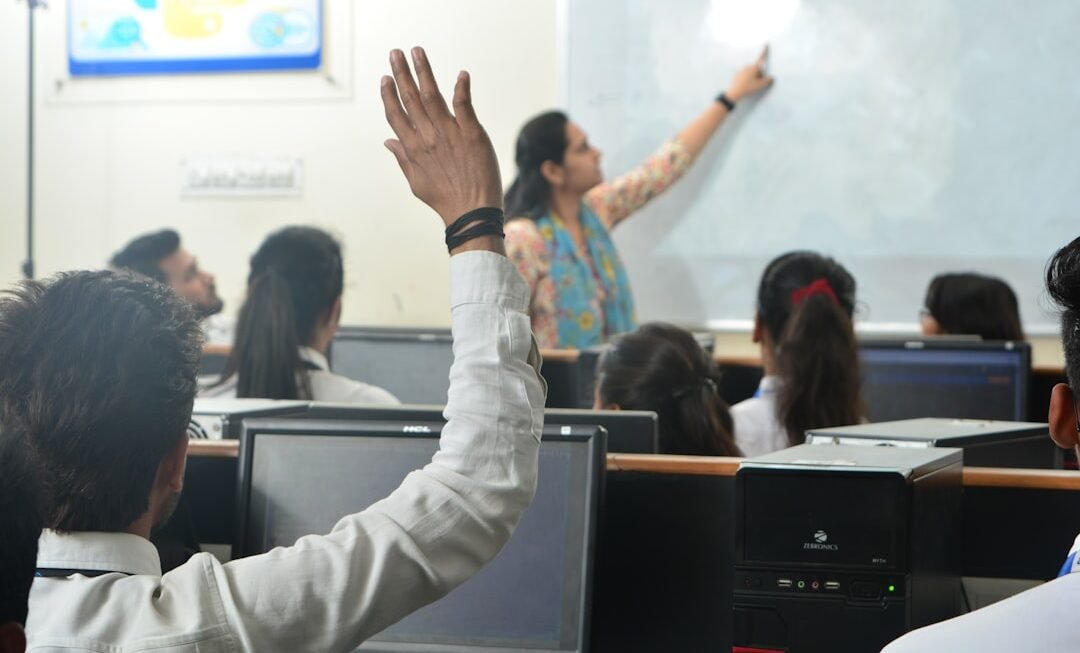In the rapidly evolving educational landscape of Asia, the necessity for upskilling educators has never been more pronounced. As economies grow and technology advances, the demand for a skilled workforce increases, necessitating a shift in teaching methodologies. Educators are at the forefront of this transformation, tasked with equipping students with the skills needed to thrive in a competitive global environment.
Upskilling not only enhances teachers’ pedagogical techniques but also empowers them to integrate new technologies and innovative practices into their classrooms. This is particularly crucial in Asia, where diverse educational systems and cultural contexts require tailored approaches to teaching and learning. Moreover, the COVID-19 pandemic has accelerated the need for educators to adapt to online and hybrid teaching models.
Upskilling initiatives can bridge these gaps, providing educators with the tools and knowledge necessary to engage students effectively in virtual environments. By investing in professional development, educational institutions can foster a culture of continuous learning among teachers, ultimately leading to improved student outcomes and a more resilient education system.
Key Takeaways
- Upskilling educators in Asia is crucial for adapting to the changing landscape of education and meeting the needs of 21st century learners.
- Educators in Asia face challenges such as lack of technical skills, limited access to technology, and difficulties in engaging students in online learning environments.
- Strategies for effective online teaching in Asia include creating interactive and culturally relevant content, fostering a sense of community, and providing personalized support to students.
- Technology plays a vital role in enhancing online teaching by providing tools for collaboration, personalized learning, and real-time feedback.
- Cultural sensitivity in online teaching practices is essential for creating inclusive and respectful learning environments that honor diverse perspectives and backgrounds.
Challenges Faced by Educators in Transitioning to Online Teaching
Overcoming the Technological Gap
This technological gap can lead to frustration and decreased confidence among educators, ultimately impacting their ability to deliver quality instruction. To address this, educators need to be provided with adequate training and support to develop their digital skills and confidence.
The Socio-Economic Landscape of Online Learning
The diverse socio-economic landscape in Asia complicates the transition to online teaching. In many regions, students may lack access to reliable internet connections or appropriate devices, creating disparities in learning opportunities. This highlights the need for educators to be aware of the diverse learning contexts of their students and adapt their teaching approaches accordingly.
Flexible Teaching Approaches for Equitable Access
Educators are often faced with the challenge of engaging students who may be attending classes from various environments, some of which may be less conducive to learning than others. This situation necessitates a flexible approach to teaching that accommodates different learning contexts while ensuring that all students receive equitable access to education. By adopting innovative and adaptive teaching strategies, educators can help bridge the gap and provide quality education to students from diverse backgrounds.
Strategies for Effective Online Teaching in Asian Context
To navigate the complexities of online teaching effectively, educators in Asia can adopt several strategies tailored to their unique contexts. One effective approach is the incorporation of blended learning models that combine synchronous and asynchronous elements. This allows educators to provide real-time instruction while also offering students the flexibility to engage with course materials at their own pace.
For instance, teachers can conduct live lectures or discussions while supplementing these sessions with recorded videos, readings, and interactive assignments that students can complete independently. Another strategy involves fostering a sense of community among students in virtual classrooms. Building relationships and encouraging collaboration can significantly enhance student engagement and motivation.
Educators can utilize breakout rooms for small group discussions or collaborative projects, enabling students to interact with their peers and develop essential teamwork skills.
The Role of Technology in Enhancing Online Teaching
Technology plays a pivotal role in enhancing online teaching practices across Asia. The integration of various digital tools can facilitate interactive learning experiences that captivate students’ attention and promote active participation. For example, platforms like Kahoot! or Quizizz allow educators to create engaging quizzes and games that reinforce learning objectives while providing instant feedback. Such tools not only make learning enjoyable but also help educators assess student understanding in real-time. Furthermore, technology enables personalized learning experiences that cater to individual student needs. Adaptive learning platforms can analyze student performance data and adjust content delivery accordingly, ensuring that each learner progresses at their own pace. This level of customization is particularly beneficial in diverse classrooms where students may have varying levels of proficiency and learning styles. By leveraging technology effectively, educators can create inclusive environments that support all learners in achieving their academic goals.
Incorporating Cultural Sensitivity in Online Teaching Practices
Cultural sensitivity is an essential component of effective online teaching, especially in the diverse educational landscape of Asia. Educators must recognize and respect the varied cultural backgrounds of their students to create an inclusive learning environment. This involves understanding cultural norms, values, and communication styles that may influence how students engage with course content and interact with their peers.
One practical way to incorporate cultural sensitivity is by integrating culturally relevant materials into the curriculum. Educators can draw on local histories, traditions, and languages to make lessons more relatable and engaging for students. Additionally, fostering an open dialogue about cultural differences can encourage students to share their perspectives and experiences, enriching the learning experience for everyone involved.
By prioritizing cultural sensitivity, educators can build trust and rapport with their students, ultimately enhancing their overall educational experience.
Professional Development Opportunities for Educators in Asia
Professional development opportunities are crucial for educators seeking to enhance their skills and adapt to the demands of online teaching. Various organizations across Asia offer workshops, webinars, and training programs focused on digital pedagogy and technology integration. For instance, initiatives like the Asia-Pacific Economic Cooperation (APEC) Education Network provide resources and support for educators looking to improve their online teaching practices.
In addition to formal training programs, peer collaboration can serve as an invaluable professional development tool. Educators can form networks or communities of practice where they share experiences, resources, and best practices related to online teaching. These collaborative efforts not only foster a sense of camaraderie among teachers but also facilitate the exchange of innovative ideas that can enhance instructional effectiveness.
Support Systems for Educators in Online Teaching
Establishing robust support systems is essential for educators navigating the challenges of online teaching. Educational institutions must prioritize providing resources such as technical support, instructional design assistance, and mental health services for teachers. Access to dedicated IT support can alleviate technological frustrations, allowing educators to focus on delivering quality instruction rather than troubleshooting technical issues.
Moreover, mentorship programs can play a vital role in supporting educators during their transition to online teaching. Pairing experienced teachers with those new to online instruction can provide valuable guidance and encouragement. Mentors can share insights on effective teaching strategies, classroom management techniques, and ways to engage students in virtual environments.
By fostering a supportive community within educational institutions, teachers are more likely to feel empowered and confident in their ability to succeed in online teaching.
The Future of Online Teaching in Asia: Trends and Innovations
As we look toward the future of online teaching in Asia, several trends and innovations are poised to shape the educational landscape. One notable trend is the increasing emphasis on hybrid learning models that blend traditional face-to-face instruction with online components. This approach allows for greater flexibility and adaptability in response to changing circumstances while maintaining the benefits of in-person interactions.
Additionally, advancements in artificial intelligence (AI) and machine learning are set to revolutionize online education by providing personalized learning experiences at scale. AI-driven platforms can analyze student data to identify areas where learners may need additional support or enrichment, enabling educators to tailor their instruction accordingly. Furthermore, innovations such as virtual reality (VR) and augmented reality (AR) hold the potential to create immersive learning experiences that engage students in ways previously unimaginable.
In conclusion, as Asia continues to navigate the complexities of online education, it is imperative that educators are equipped with the skills, resources, and support necessary to thrive in this evolving landscape. By prioritizing upskilling initiatives, embracing technology, and fostering cultural sensitivity, educators can create dynamic learning environments that prepare students for success in an increasingly interconnected world.












